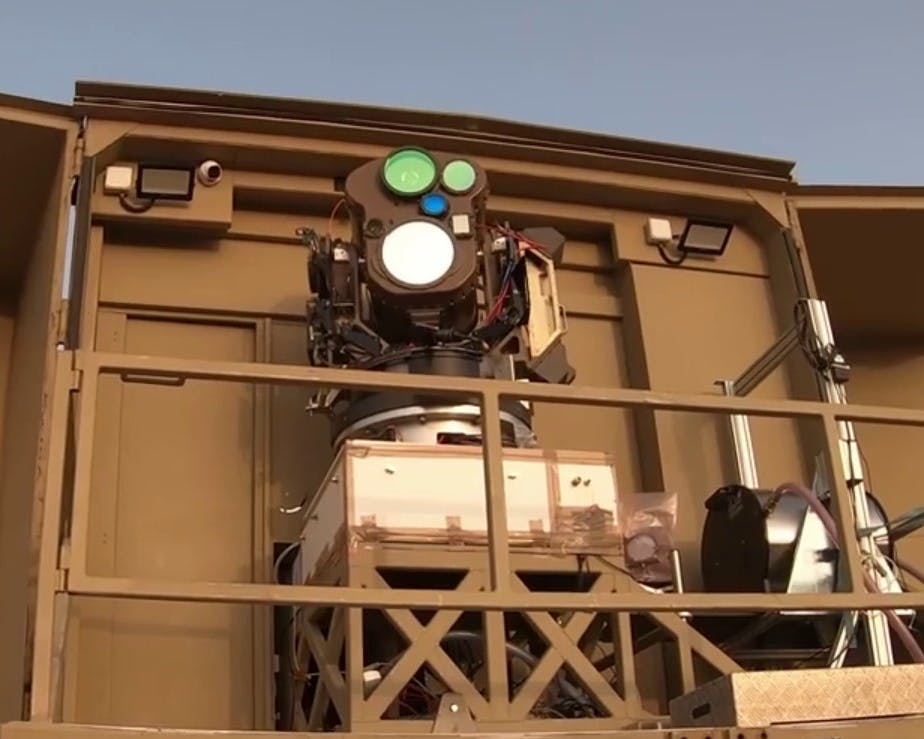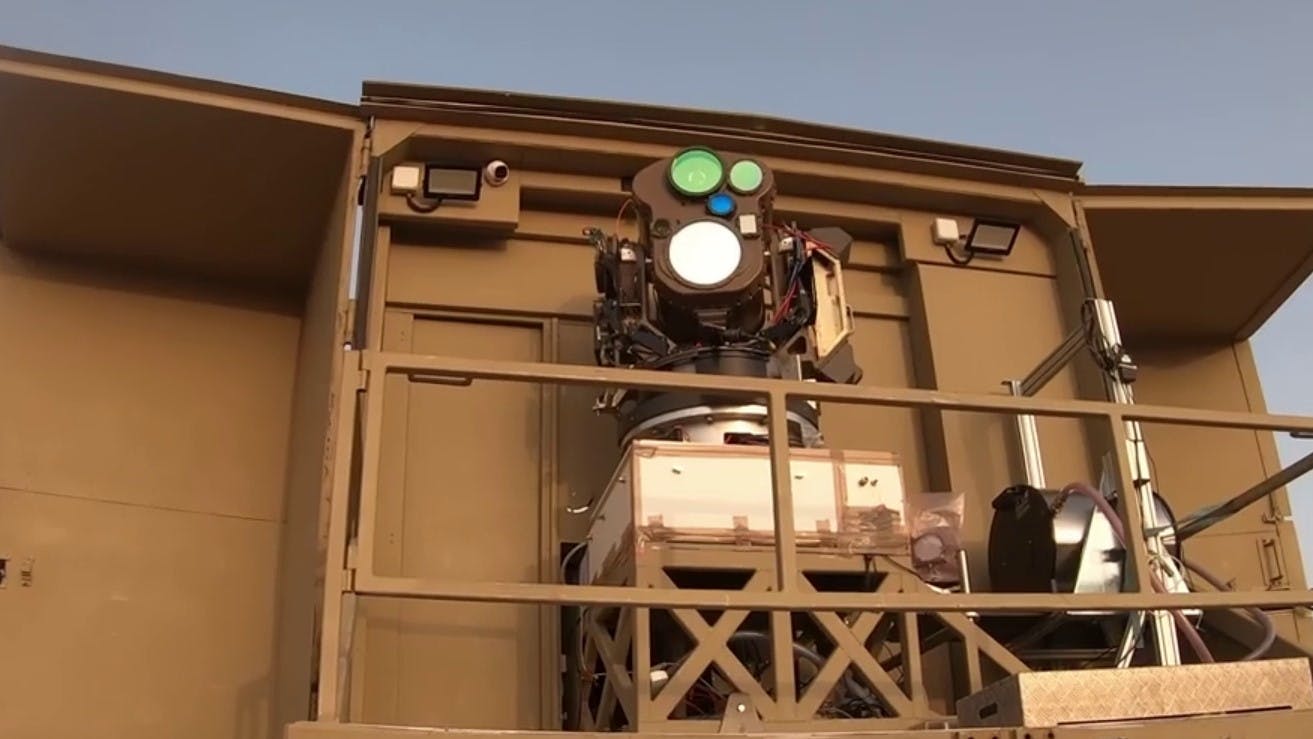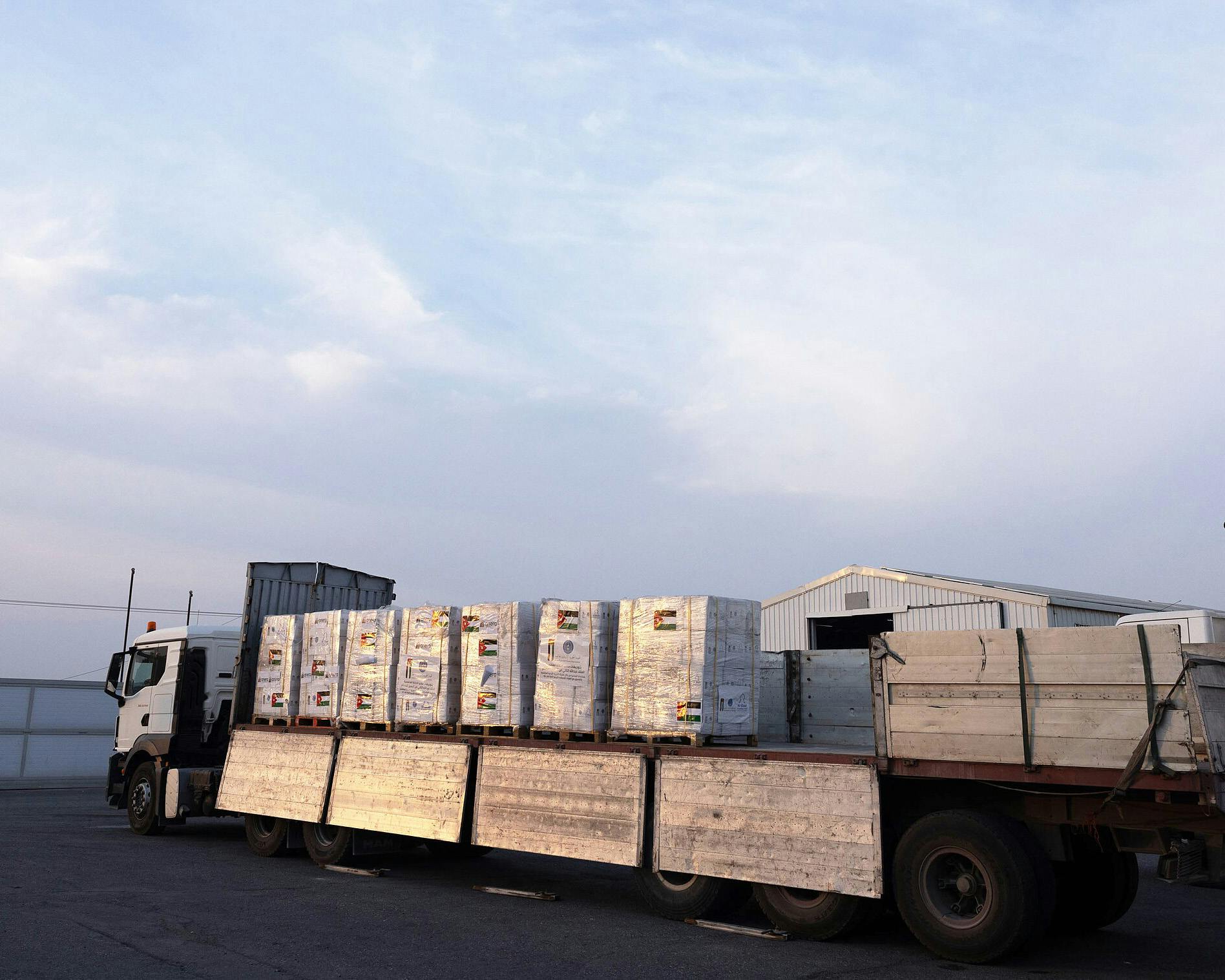Israel Rolls Out Iron Beam Laser System to Bolster Air Defense

Friday, 30 May 2025 | Israel’s new Iron Beam laser defense system, a high energy-weapon designed to intercept rockets, drones and missiles has proven its mettle in combat, military officials announced Friday. Now operational along the Gaza and northern borders, the system has successfully destroyed Hezbollah drones and other aerial threats, significantly improving Israel’s multilayered air defense at a fraction of the cost of traditional missile interceptors.
“Iron Beam is a breakthrough for our national security,” said Brig. Gen. Eyal Harel, a senior official in the Israel Defense Forces’ Air Defense Command. “It neutralizes threats for just a few dollars per shot, compared to tens of thousands for conventional interceptors. This allows us to protect our citizens while preserving resources.”
Developed by Raphael Advanced Defense Systems, in collaboration with Israel’s Defense Ministry, Iron Beam uses directed-energy lasers to destroy short-range threats by heating them until they explode, often within seconds, which offers a near-instantaneous response to threats. Successful tests conducted in late 2024, in the Negev Desert, confirmed its ability to handle multiple threats simultaneously. “This technology is a game changer,” said Yoav Har-Even, CEO of Raphael. “Iron Beam integrates seamlessly without existing systems, creating a robust shield over Israel.”

The system’s affordability–estimated at $2 to $4 per interception–addresses a critical challenge in Israel’s protracted modern warfare: the high cost of defending against frequent, low-cost rocket and drone attacks. Groups like Hamas and Hezbollah have fired thousands of rockets and unmanned aerial vehicles into Israel in recent years, which has strained Israel’s munition stockpiles for systems like the Iron Dome, which can cost $50,000 per interceptor. “Iron Beam’s low cost means we can sustain long-term defense operations’” said Talia Cohen, a Defense Ministry spokesperson. “It’s not only about technology; it’s about ensuring we can protect our people indefinitely.”
The deployment comes amid escalating tensions in the region, particularly along the Gaza border, where rocket barrages have disrupted daily life for years. Residents in southern communities like Sderot and Ashkelon, long accustomed to air raid sirens, expressed hope that Iron Beam could reduce that threat.
Iron Beam’s rollout follows years of development, with Israel investing heavily in laser technology to counter evolving threats. The system is designed to operate in tandem with Iron Dome, which handles mid-range threats, and Arrow, which targets long-range missiles. Together, they form a layered defense network capable of addressing diverse aerial challenges. “This is about staying ahead of our adversaries,” Brig. Gen. Harel said. “Our enemies are adapting, and so are we.”
However, experts caution that Iron Beam has limitations. Lasers can be less effective in adverse weather conditions, such as heavy fog, rain, or dust storms, which may weaken the beam’s intensity. “It’s a powerful tool, but it’s not a silver bullet,” said Yossi Peled, a retired IDF colonel and defense analyst. “Environmental factors can reduce its reliability, so we’ll still rely on traditional systems as a backup.” Additionally, Iron Beam’s range is currently limited to short distances, making it most effective against close-proximity threats like those from Gaza.
The system’s debut has drawn global attention, with military experts and defense contractors eyeing its potential. NATO countries, including the United States, have expressed interest in laser-based defenses, though Israel has remained cautious about exports due to strategic concerns. “Iron Beam could reshape how nations approach air defense,” said Talia Cohen. “Its affordability and precision are unmatched, but geopolitical factors will likely limit its availability abroad.”
For Israel, the focus is on expanding Iron Beam’s deployment. Plans are underway to install additional units along the northern border with Lebanon, where Hezbollah has posed a major threat. The Defense Ministry aims to have the system fully integrated across multiple fronts by late 2025. “We’re scaling up to ensure comprehensive coverage,” Cohen said. “This is a long-term investment in our security.”
(Bridges for Peace, May 30, 2025)
License: Wikimedia
Related Resources

Discover Your Purpose and God’s Heart For You
In today's divided, turbulent world, it's essential for the Church to rediscover God's heart. Our free e-book, authored by a seasoned expert with three decades of experience in Israel, delves deep into the teachings of Jesus (Yeshua) to reveal God’s principles of love and purpose. Learn how embracing these truths can bring significance and impact to your life, even amidst chaos. Subscribe now to receive your free copy and embark on a journey of transformation.




